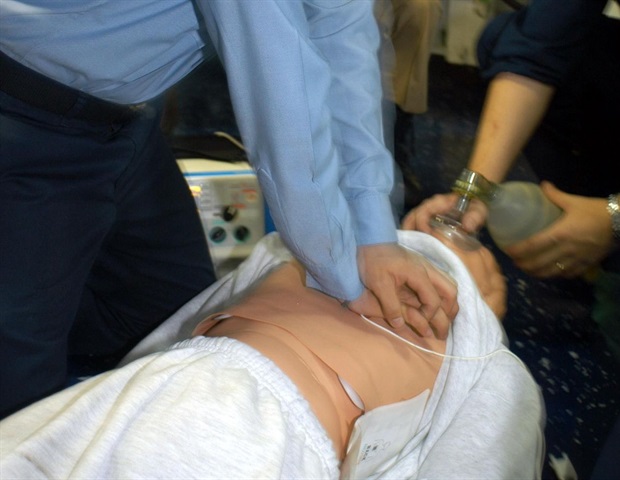In a recent study posted to the medRxiv* preprint server, researchers in the Netherlands examined the role of inflammatory genes, cytotoxic T-lymphocytes (CD8+ T cells), and pro-inflammatory cytokines in long-lasting severe fatigue experienced by a large number of coronavirus disease 2019 (COVID-19) patients.
Study: Severe fatigue as symptom of long COVID is characterized by increased expression of inflammatory genes in monocytes, increased serum pro-inflammatory cytokines, and increased CD8+ T-lymphocytes: A putative dysregulation of the immune-brain axis, the coagulation process, and auto-inflammation to explain the diversity of long COVID symptoms. Image Credit: eamesBot / Shutterstock
Background
Post-acute sequelae of severe acute respiratory syndrome coronavirus 2 (SARS-CoV-2) infection (PASC), commonly known as long COVID, includes a wide range of symptoms, often persisting beyond three months after the SARS-CoV-2 infection. The typical manifestations of long COVID include fatigue, low fitness, shortness of breath (dyspnea), and reduced cognition.
Fatigue is the most reported symptom, with 41% to 60% of patients experiencing debilitating fatigue beyond six months and even up to a year. This long-lasting fatigue is also a characteristic of post-infectious syndromes from other pathogens such as the bacteria Coxiella burnetii and the Epstein-Barr virus that causes mononucleosis. Chronic fatigue syndrome (CFS), or myalgic encephalomyelitis (ME), also results in severe fatigue for six months or more, accompanied by reduced fitness and cognitive impairment.
Research has identified a connection between CFS-related fatigue and an increase in cytotoxic T-lymphocytes and cytokines. Recent studies have also found an increase in T- and B-lymphocytes and inflammatory cytokines in patients convalescing from COVID-19. However, a comprehensive clinical and immunologic profiling of long COVID patients associating immunological abnormalities with the clinical manifestations of long COVID is lacking.
About the study
The present study selected 37 patients who experienced severe fatigue as part of long COVID and 36 long COVID patients without severe fatigue. They also used a control group of gender- and age-matched healthy individuals.
Immunological assessments were conducted three to six months after COVID-19 hospital discharge, while clinical symptoms were monitored for a year following discharge. The study also assessed the patient-reported outcome measures (PROMs).
The researchers tested the expression of genes involved in inflammation in the circulating monocytes using reverse transcribed complementary deoxyribonucleic acid (cDNA), which was then subjected to quantitative polymerase chain reaction (qPCR).
Additionally, high sensitivity enzyme-linked immunosorbent assay (ELISA) was used to test the serum levels of various soluble cell surface markers and cytokines, including brain-derived neurotrophic factor (BDNF), tumor necrosis factor-alpha (TNF-α), granulocyte-macrophage colony-stimulating factor (GM-CSF), T-cell immunoglobulin, and various interferons, interleukins, and chemokine ligands.
Results
The results indicated that long COVID patients who experienced severe fatigue showed increased inflammation-related gene expression in the monocytes, as well as elevated serum levels of soluble cell surface markers and inflammatory cytokines, and CD8+ T lymphocytes. The authors also referred to a few other studies that reported associations between increased cytotoxic T-lymphocytes and severe clinical variants of SARS-CoV-2 infections.
Long COVID patients without severe fatigue displayed improvement in fitness in the follow-up period but experienced a significant reduction in CD45RO– naïve CD4+ T-lymphocyte percentage, known as naive CD4+ lymphocytopenia. They also had reduced CD4+ T regulatory lymphocytes. The serum levels of the non-fatigued long COVID patients with the moderately severe variant showed elevated Galectin-9 and interleukin-6 levels in the serum but a limited expression of inflammatory genes in the monocytes.
Surprisingly, patients with the clinically mild variant of long COVID who did not experience fatigue showed increased activation of monocyte inflammatory genes and elevated serum levels of Galectin-9 and interleukin-6, similar to long COVID patients with severe fatigue. However, their cytotoxic T-lymphocyte levels were not excessively high. In contrast to the non-fatigued long COVID patients with the moderately severe variant, the mild variant was not associated with naive CD4+ lymphocytopenia.
Comparisons of the immune profile of CFS or ME with that of long COVID fatigue showed similarities such as increased CD8+ T lymphocytes, increased expression of monocyte inflammatory genes, and elevated serum levels of pro-inflammatory cytokines. The study also found associations between long COVID and symptoms of major depressive disorder.
Conclusions
Overall, the study observed increased expression of inflammatory genes and elevated levels of cytotoxic T cells and serum pro-inflammatory cytokines in long COVID patients with severe fatigue. While non-fatigued long COVID patients exhibited other immunological features such as naive CD4+ lymphocytopenia and elevated serum levels of certain interleukins, the increase in CD8+ T lymphocytes is associated mostly with severe fatigue.
The long-lasting fatigue and its debilitating effects on quality of life and fitness have also been associated with major depressive disorder. The authors believe that targeting the immune abnormalities with personalized therapies consisting of anti-inflammatory agents and interferon inducers could alleviate many disabling symptoms of long COVID.
*Important notice
medRxiv publishes preliminary scientific reports that are not peer-reviewed and, therefore, should not be regarded as conclusive, guide clinical practice/health-related behavior, or treated as established information
Journal reference:
- Severe fatigue as symptom of long COVID is characterized by increased expression of inflammatory genes in monocytes, increased serum pro-inflammatory cytokines, and increased CD8+ T-lymphocytes. A putative dysregulation of the immune-brain axis, the coagulation process, and auto-inflammation to explain the diversity of long COVID symptoms: Julia C Berentschot, Hemmo A Drexhage, Daniel A Aynekulu Mersha, Annemarie JM Wijkhuijs, Corine H GeurtsvanKessel, Marion PG Koopmans, Jolanda Voermans, Majanka H Heijenbrok-Kal, L. Martine Bek, Gerard M Ribbers, Rita JG van den Berg-Emons, Joachim GJV Aerts, Willem A Dik, and Merel E Hellemons. medRxiv.2022. DOI: https://doi.org/10.1101/2022.09.15.22279970, https://www.medrxiv.org/content/10.1101/2022.09.15.22279970v1














